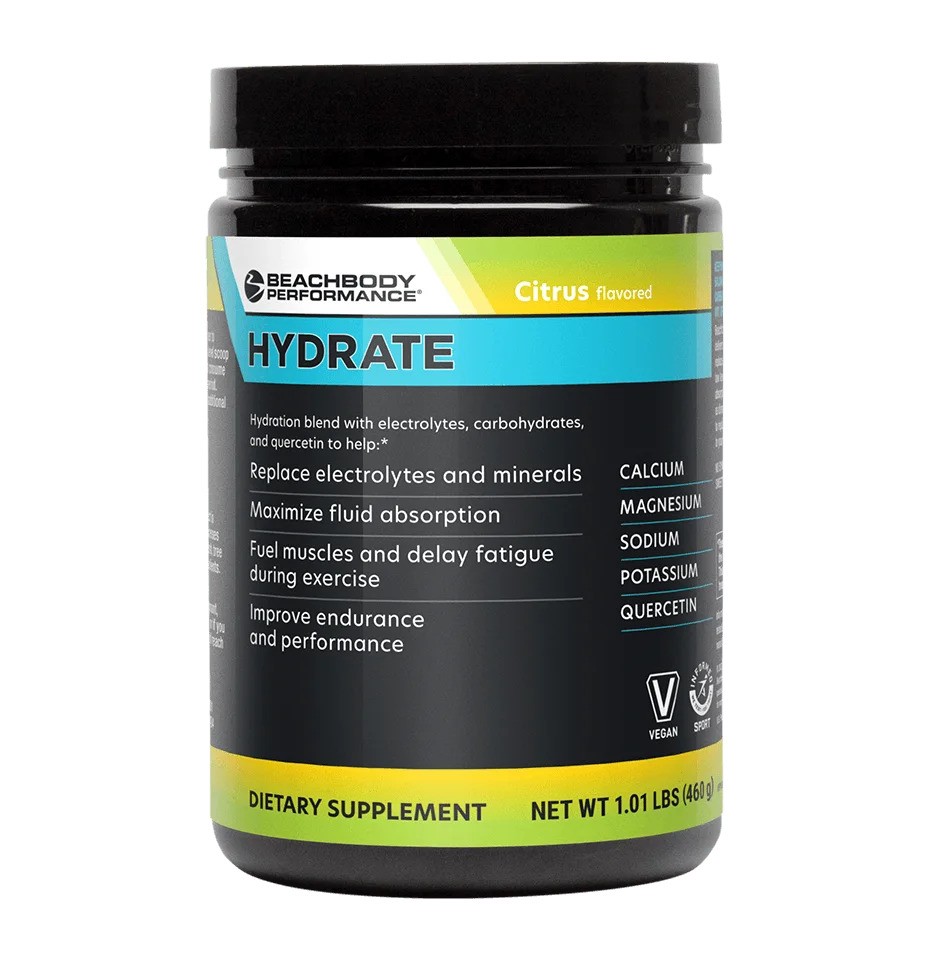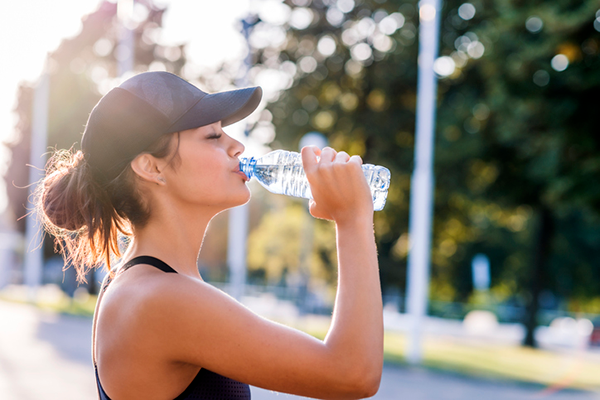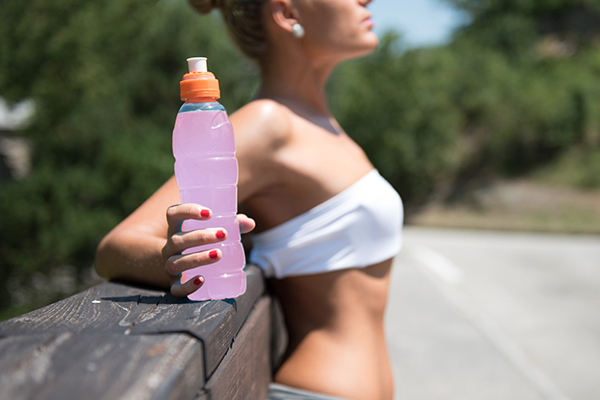Hydration and exercise go hand-in-hand. But is that trusty water bottle filled with regular H2O enough? Or could you benefit from an electrolyte supplement like Beachbody Performance Hydrate? Here’s what the experts say.
What Are Electrolyte Supplements?

“Hydration supplements are additives put in water to facilitate or enhance your body’s natural ability to absorb water quickly and reduce the potential impacts of dehydration,” says Amy Stone, an endurance coach in Miami who specializes in long-distance running and ultra triathlons.
They do that by boosting the levels of certain electrolytes — such as sodium, magnesium, and potassium — that help the body’s cells maintain fluid balance.
In the case of Beachbody Performance Hydrate, you’ll get a lemon lime powder that contains sodium, calcium, magnesium, and potassium to help replace what’s lost through sweat, promote endurance, and support overall hydration levels.*
Electrolyte supplements often come in the form of a drink mix or capsule that you can take before, during, or after exercise.
Do Electrolyte Supplements Work?
While the liquids you’re taking them with are providing hydration, the supplements work by providing minerals to your body.
“Hydration supplements work very well at replacing the electrolytes we lose during hot weather and intense exercise,” which can even help aid recovery, says ACE-certified personal trainer Michael Julom.*
Many electrolyte beverages also deliver fast-absorbing carbohydrates to help keep you fueled during long, intense workouts and maintain performance.* (There are also a number of sugar-free electrolyte drinks that omit carbs and sugar from their ingredient list.)
Can Water Hydrate Me Enough by Itself?

Sometimes, but not always. Water helps keep the body’s fluid levels stable, but that’s only one element of hydration.
“We need electrolytes, too,” says Julom. “This doesn’t necessarily mean using supplements. There are plenty of foods that are rich in various electrolytes. Usually, simple table salt will help to remedy symptoms of light dehydration.”
However, when it comes to replacing electrolytes efficiently and conveniently, hydration supplements take the edge over whole foods.
“During exercise, fluids with electrolytes are a much faster way to replenish electrolytes,” says Stone. “Electrolytes can help the fluid absorb more quickly out of your digestive system. They help our bodies send and receive instructions to contract and release muscles, and they may potentially reduce cramping in tired muscles.”
Research is limited, so more studies are needed to conclude that electrolytes can help with cramping.*
Why Are Electrolytes Important for Hydration?
When we sweat, electrolytes help keep the water balanced inside and outside cells so that your muscles and organs can continue to function properly.*
Sodium
We lose electrolytes, especially sodium, in perspiration — that’s why sweat tastes salty. “Sweating a lot — as we do during hot weather or intense exercise — can lead to dehydration, including a deficit of crucial electrolytes,” says Julom.
Potassium
Bansari Acharya, MA, RDN, a registered dietitian nutritionist in Detroit, notes that potassium is important for muscle function and strength. Low potassium levels can lead to fatigue and weakness.*
Magnesium
Magnesium helps the body retain potassium, Acharya adds. The kidneys help regulate magnesium concentration dependent on the body’s current levels.
“Taking in electrolytes as part of your rehydration will help you to replace those lost minerals,” says Julom. “Electrolytes will also make your water intake more efficient, as electrolytes like magnesium, calcium, potassium, and sodium can help you to retain fluid and maintain a healthy fluid balance in your body.”
Why Is Hydration Important?

Adequate hydration is essential for the proper functioning of organs throughout the body, explains Acharya. Hydration also helps regulate body temperature and keep joints lubricated.
*These statements have not been evaluated by the Food and Drug Administration. This product is not intended to diagnose, treat, cure, or prevent any disease.
The post Why and When You Should Use an Electrolyte Supplement appeared first on BODi.

0 Comments